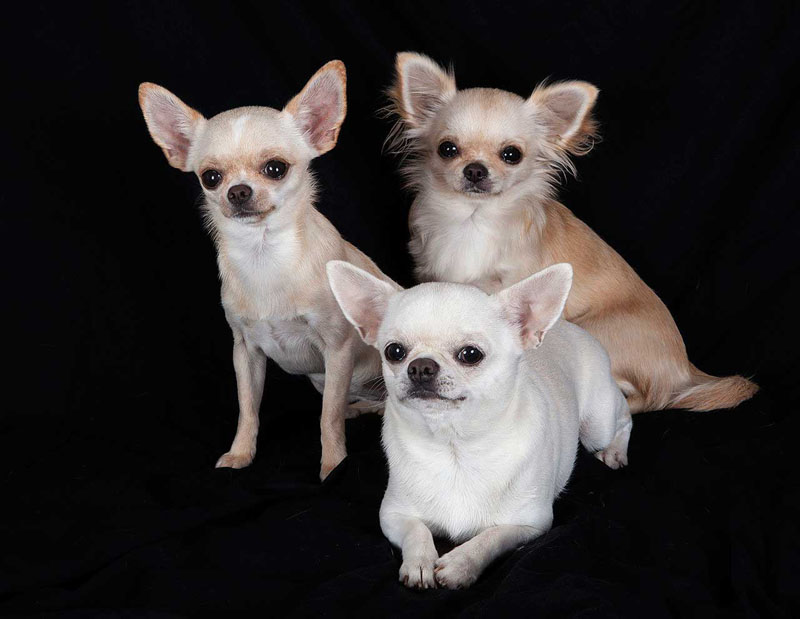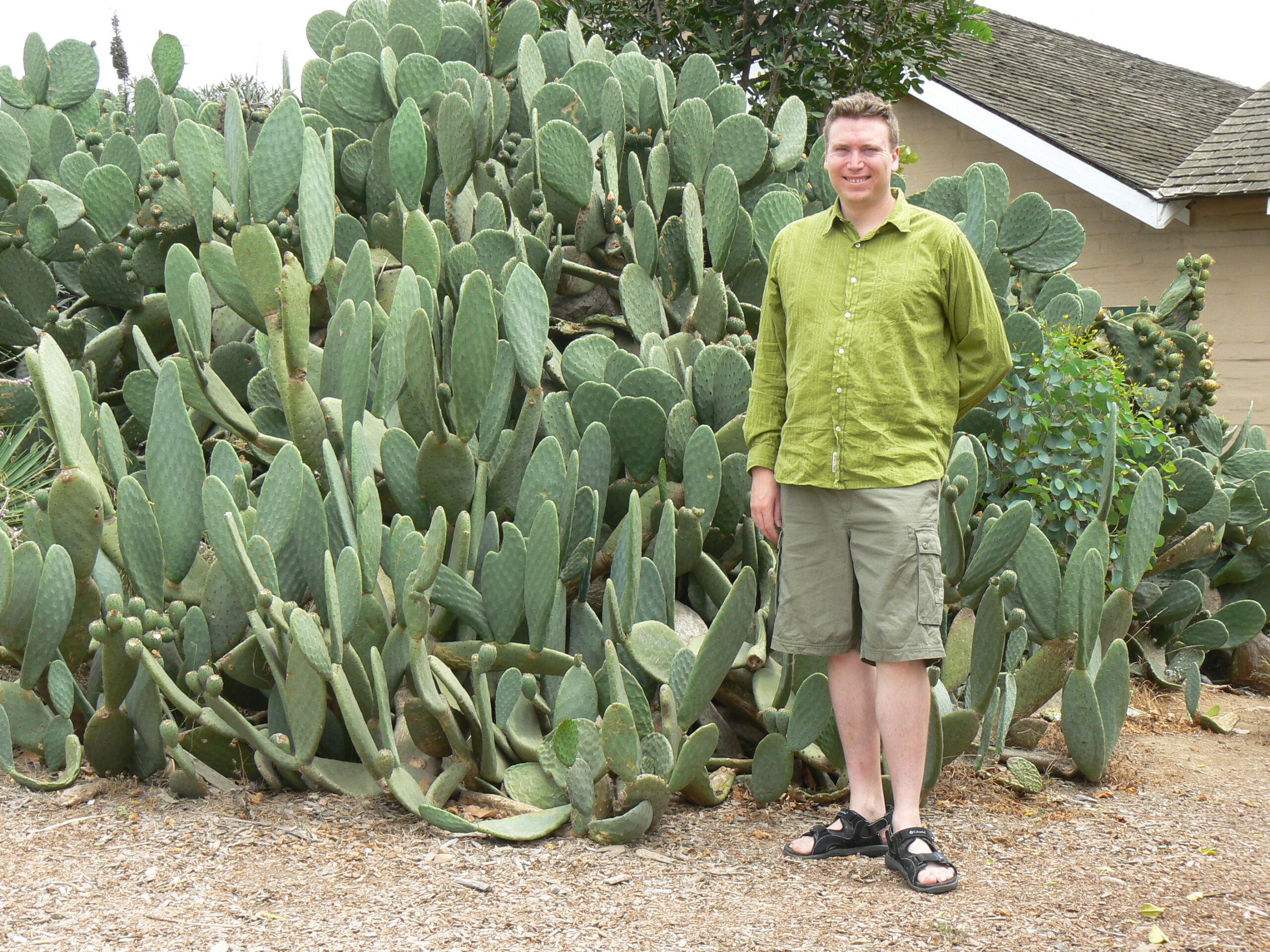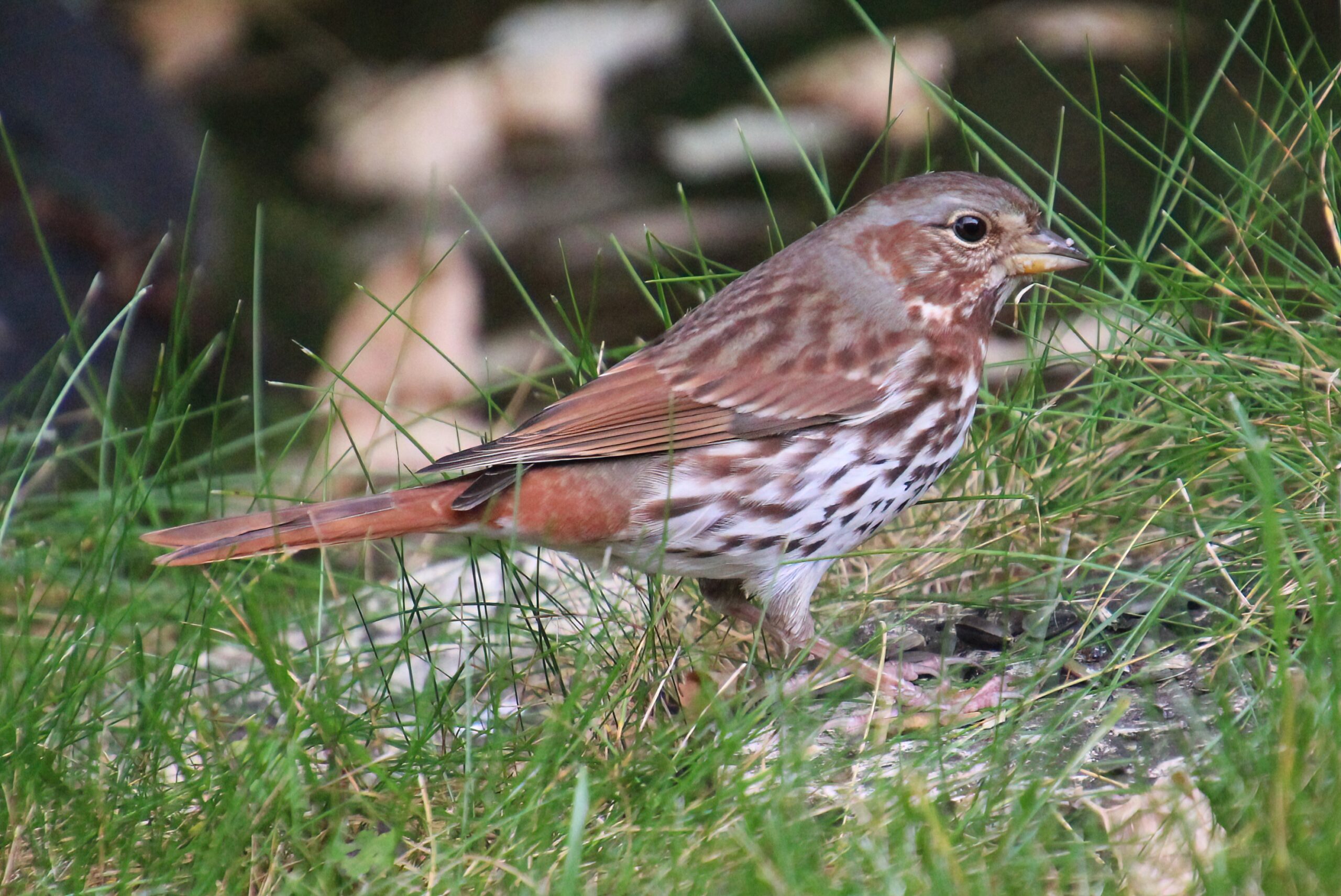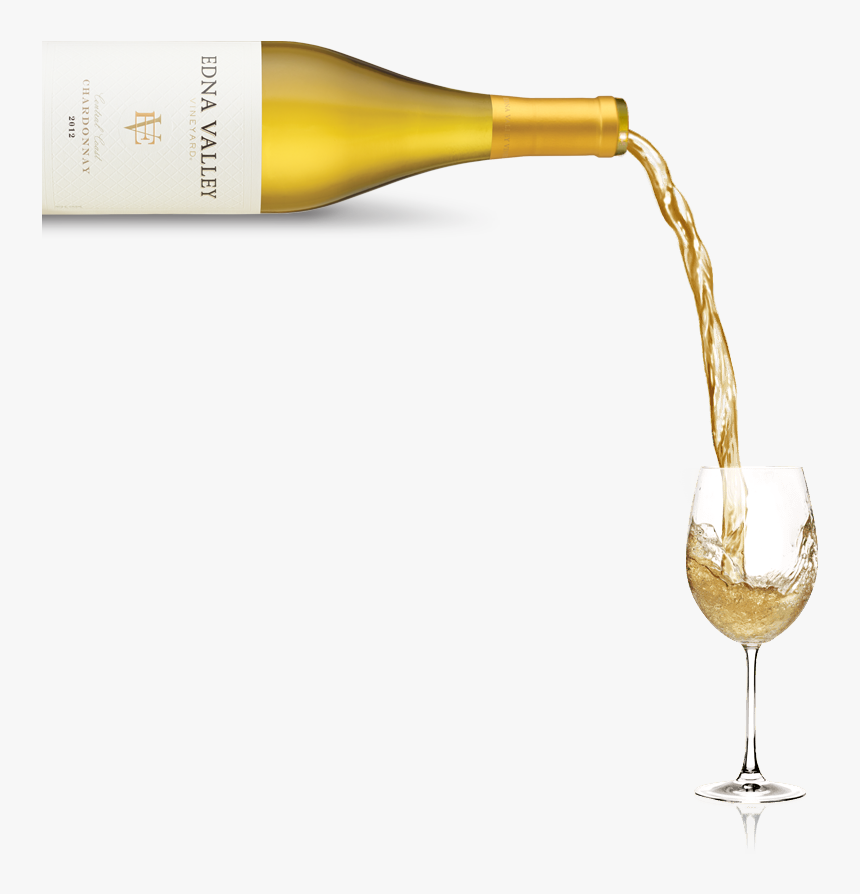So from last week’s biggest to this week’s smallest recognized breed: the Chihuahua.
With origins in Chihuahua, Mexico, these little cuties weigh in at a whopping 4-10 lbs and will generally stand 6-10 inches high. They are classified as a Toy breed.
Chihuahuas are among the oldest breeds of the Americas, with a lineage going back to the ancient kingdoms of pre-Columbian times. The AKC recognized the breed in 1904.
There are 2 types of Chihuahuas: the “Apple Head” and the “Deer Head. The Apple Head Chihuahua is known for having a
round/apple-shaped head and a definite “stop” whereas a Deer Head Chihuahua “may” have a flatter head, thinner skull, but
is unlikely to have a “stop” and will probably have a much longer nose. Their physical body shape is largely the same, except
the Deer Head Chihuahua is known to have longer legs than other Chihuahuas. The Deer Head Chihuahua tends to be
heavier in weight, where an Apple Head is more likely to keep their weight under ten pounds. Apple Head Chihuahuas are
longer than they are tall and have shorter necks. Deer Head Chihuahuas have longer ears than Apple Heads and their head
also has a slope-shaped form. Both Apple Head and Deer Head can have short hair or long hair. They also both come in
various different colors such as brown, black, tan, or white. Chihuahuas can show traits from both Apple Head and Deer
Head.
How a Chihuahua behaves depends on the genetic temperament of their parents and grandparents. Their small size makes
them delicate and vulnerable to injuries and attacks from larger animals. Like all dogs, they benefit from appropriate
socialization and training. Chihuahuas tend to learn better when being rewarded positive reinforcement, such as a treat or
praise. With the proper training a Chihuahua needs, this dog exhibit extreme intelligence.
Chihuahuas can be easily frightened or provoked to attack, so are generally unsuitable for homes with small children, particularly children who enjoy rough housing. The breed tends to be fiercely loyal to one particular person and in some cases may become overprotective of the person, especially around other people or animals, and tend to have a “clannish” nature, often preferring the companionship of other Chihuahuas or Chihuahua mixes over other dogs.
The DNA of a Chihuahua doesn’t lend itself well to cold weather so make sure they are insulated well in these cold southern Alberta winters! They seek warmth in sunshine, under blankets, or on furniture, or human laps.
The lifespan for a Chihuahua is usually between 14 and 16 years.
For people that have a sedentary lifestyle and enjoy a peaceful existence, Chihuahuas can make good pets or companion dogs. Although they require some exercise, it is nothing compared to larger breeds, and as such make great city dogs.
Because of their size, this breed should be treated with care but don’t under estimate the “big dog” mentality that can show through sometimes. This can be reflected in their vocal capacity (they bark a lot!)
So, as with any breed, do your homework before getting a Chihuahua. You want to try and ensure that the qualities they bring fit with your lifestyle and expectations. No surprise Christmas presents please just because they look cute! And don’t submit to your young kids’ belief that they need a Chihuahua because Tracker from Paw Patrol is a Chihuahua!







